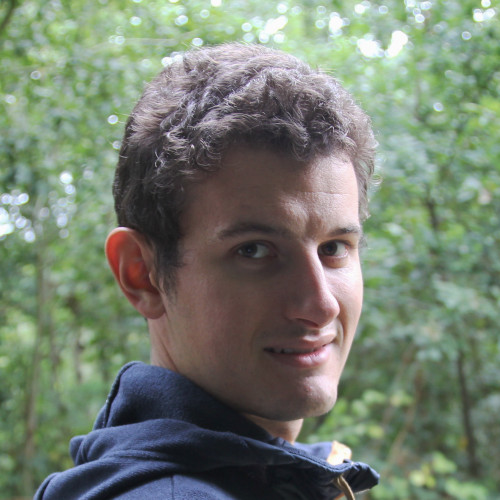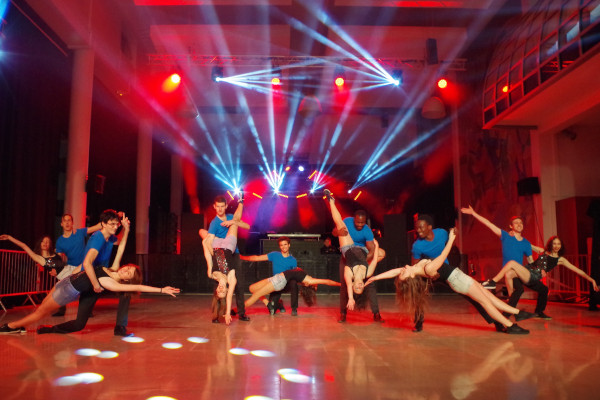
Since october 2024, I'm a researcher (maître de conférence, equivalent of associate professor) in quantum cryptography at the Université Grenoble Alpes (UGA) in France.
Expertise
While I'm interested in quantum computing and cryptography in general, my research mostly focuses on delegated quantum computing and quantum multiparty computing (MPC).
I notably worked on the design and security analysis of protocols related to delegated blind quantum computing assuming a purely classical client, involving lattice based cryptography and composable security. More recently I started to get interested in many other problems, including the generalization of Zero-Knowledge proofs to quantum states and their applications to MPC, the composable distribution of graph states, one-time memories, ZX-calculus and more.
Curriculum
I studied at the Ecole Normale Supérieure (ENS) Paris-Saclay, which is part of the Université Paris-Saclay. I have two bachelors (in physics and computer science) and a master in computer science (MPRI). I did my PhD at Sorbonne Université, supervised by Elham Kashefi and Antoine Joux, and continued with a postdoc at QuSoft/CWI in Amsterdam with Christian Schaffner, Stacey Jeffery and Florian Speelman. For more details, see my CV.
Latest News
Several people asked me for the slides I made for the Quantum Introductory Tutorial at the Spring School in Theoretical Computer Science (EPIT). You can find them here (with the PDF and short animations).
Publications and Preprints
Papers are listed in reverse choronological order, based on their first online appearance. See also my dblp and profiles (warning: it seems like since my name changed, Google Scholar stopped indexing my articles).
- A Quantum Cloning Game with Applications to Quantum Position Verification
L. Escolà-Farràs, L. Colisson Palais, F. Speelman
TQC 2025, arXiv:2410.22157, September 2025. - All graph state verification protocols are composably secure
L. Colisson, D. Markham, R. Yehia
Manuscript, talk at QCRYPT 2024 and QPL 2024, arXiv:2402.01445, February 2024. - Oblivious Transfer from Zero-Knowledge Proofs, or How to Achieve Round-Optimal Quantum Oblivious Transfer and Zero-Knowledge Proofs on Quantum States
L. Colisson, G. Muguruza, F. Speelman
ASIACRYPT 2023 (to appear), arXiv:2303.01476, March 2023. - Non-Destructive Zero-Knowledge Proofs on Quantum States, and Multi-Party Generation of Authorized Hidden GHZ States
L. Colisson, F. Grosshans, E. Kashefi
ACM TQC, arXiv:2104.04742, April 2021. - Security Limitations of Classical-Client Delegated Quantum Computing
C. Badertscher, A. Cojocaru, L. Colisson, E. Kashefi, D. Leichtle, A. Mantri, P. Wallden
ASIACRYPT 2020 (Video, Short live session), Presented at Q-turn 2020, arXiv:2007.01668, July 2020. - QFactory: classically-instructed remote secret qubits preparation
A. Cojocaru, L. Colisson, E. Kashefi, P. Wallden
ASIACRYPT 2019, arXiv:1904.06303, April 2019. - On the possibility of classical client blind quantum computing
A. Cojocaru, L. Colisson, E. Kashefi, P. Wallden
Cryptography 2021 (Selected for the Journal Issue Cover), Presented at QCrypt2018 (Video, Slides), arXiv:1802.08759, February 2018.
Invited Talks
- Oblivious Transfer from Zero-Knowledge Proofs, or How to Achieve Round-Optimal Quantum Oblivious Transfer and Zero-Knowledge Proofs on Quantum States
LIP6, Sorbonne Université, October 17th, 2023. - Oblivious Transfer from Zero-Knowledge Proofs, or How to Achieve Round-Optimal Quantum Oblivious Transfer and Zero-Knowledge Proofs on Quantum States
Quantum seminar QuasarLab, uOttawa, June 16th, 2023. - Diagrammatic reasoning, cryptography, and verification
Oxford ZX-Calculus Seminar, University of Oxford, May 15th, 2023. - Tutorial: Basics of quantum information (3h)
Spring School EPIT 2021 (Slides), May 24th-28th, 2021. - Non-Destructive Zero-Knowledge Proofs on Quantum States, and Multi-Party Generation of Authorized Hidden GHZ States
Quantum Information Theory Seminar, UCL, July 1st, 2021.
For other talks I gave at various workshops and while visiting laboratories, see my CV.
International Conference Talks
- All graph state verification protocols are composably secure
L. Colisson, D. Markham, R. Yehia
Speaker at:- QCRYPT 2024, Vigo, Spain,
- QPL 2024, Buenos Aires, Argentina,
- Oblivious Transfer from Zero-Knowledge Proofs, or How to Achieve Round-Optimal Quantum Oblivious Transfer and Zero-Knowledge Proofs on Quantum States
L. Colisson, G. Muguruza, F. Speelman
Speaker at:- ASIACRYPT 2023, Guangzhou, China,
- QCrypt 2023, University of Maryland, USA.
- Security Limitations of Classical-Client Delegated Quantum Computing
C. Badertscher, A. Cojocaru, L. Colisson, E. Kashefi, D. Leichtle, A. Mantri, P. Wallden
Speaker at ASIACRYPT 2020, Online. - On the possibility of classical client blind quantum computing
A. Cojocaru, L. Colisson, E. Kashefi, P. Wallden
Speaker at:- QCrypt 2018, Shanghai, China (Video, Slides),
- JIQ 2018, Nancy, France.
Posters
- Security Limitations of Classical-Client Delegated Quantum Computing
C. Badertscher, A. Cojocaru, L. Colisson, E. Kashefi, D. Leichtle, A. Mantri, P. Wallden
Poster at QCrypt 2020 - On the possibility of classical client blind quantum computing
A. Cojocaru, L. Colisson, E. Kashefi, P. Wallden
Poster at:- GdR-IQFA 2018, Montpellier, France,
- ICoCQ 2018, Paris, France.
PhD thesis
You can download my PhD thesis here.
Internship Reports
- Calcul quantique délégué à l'aveugle par un client classique
L. Colisson
Master 2 Internship Report (supervised by Céline Chevalier between March 2018 and July 2018). - Classically Driven Delegated Blind Quantum Computing
L. Colisson
Master 1 Internship Report (supervised by Elham Kashefi between February 2017 and July 2017). - Quantum Analog of Differential Privacy in Term of Rényi Divergence
L. Colisson
License 3 Internship Report (supervised by Omar Fawzi in June 2016).
Softwares
Here are some programs and libraries I have been working on:- Robust-externalize: a library to cache images, program results and more in LaTeX.
- ZX-calculus: a library to design ZX-calculus diagrams and quantum circuits in LaTeX.
- proof-at-the-end: a LaTeX library to move proofs in appendix.
- OptiQraft: a game to discover the laws of quantum mechanics, that I co-designed with 4 PhD students and one professional designer
- QKD-game: a mini web game to support some educative presentations I gave to students
- Blenderpoint-web: a special web reader that can be used to read any video while stopping at precise frames. I used it to render original presentations that I make with Blender and some custom LaTeX libraires.


